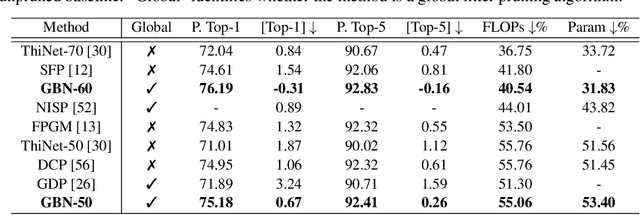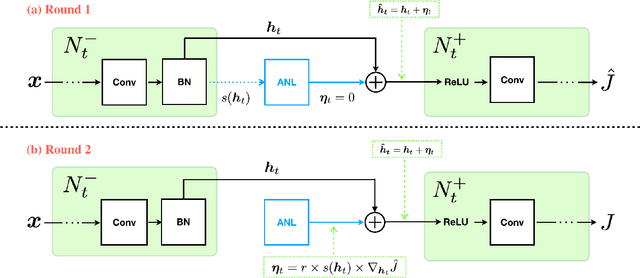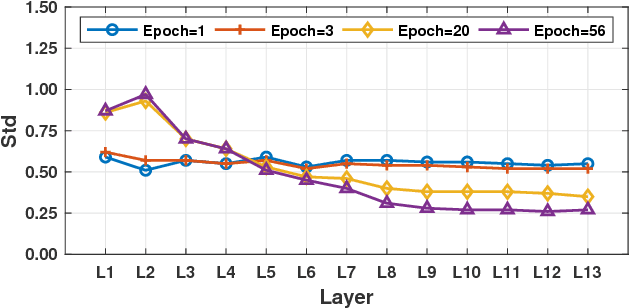Zhonghui You
Gate Decorator: Global Filter Pruning Method for Accelerating Deep Convolutional Neural Networks
Sep 18, 2019



Abstract:Filter pruning is one of the most effective ways to accelerate and compress convolutional neural networks (CNNs). In this work, we propose a global filter pruning algorithm called Gate Decorator, which transforms a vanilla CNN module by multiplying its output by the channel-wise scaling factors, i.e. gate. When the scaling factor is set to zero, it is equivalent to removing the corresponding filter. We use Taylor expansion to estimate the change in the loss function caused by setting the scaling factor to zero and use the estimation for the global filter importance ranking. Then we prune the network by removing those unimportant filters. After pruning, we merge all the scaling factors into its original module, so no special operations or structures are introduced. Moreover, we propose an iterative pruning framework called Tick-Tock to improve pruning accuracy. The extensive experiments demonstrate the effectiveness of our approaches. For example, we achieve the state-of-the-art pruning ratio on ResNet-56 by reducing 70% FLOPs without noticeable loss in accuracy. For ResNet-50 on ImageNet, our pruned model with 40% FLOPs reduction outperforms the baseline model by 0.31% in top-1 accuracy. Various datasets are used, including CIFAR-10, CIFAR-100, CUB-200, ImageNet ILSVRC-12 and PASCAL VOC 2011. Code is available at github.com/youzhonghui/gate-decorator-pruning
Adversarial Noise Layer: Regularize Neural Network By Adding Noise
Oct 30, 2018



Abstract:In this paper, we introduce a novel regularization method called Adversarial Noise Layer (ANL) and its efficient version called Class Adversarial Noise Layer (CANL), which are able to significantly improve CNN's generalization ability by adding carefully crafted noise into the intermediate layer activations. ANL and CANL can be easily implemented and integrated with most of the mainstream CNN-based models. We compared the effects of the different types of noise and visually demonstrate that our proposed adversarial noise instruct CNN models to learn to extract cleaner feature maps, which further reduce the risk of over-fitting. We also conclude that models trained with ANL or CANL are more robust to the adversarial examples generated by FGSM than the traditional adversarial training approaches.
 Add to Chrome
Add to Chrome Add to Firefox
Add to Firefox Add to Edge
Add to Edge